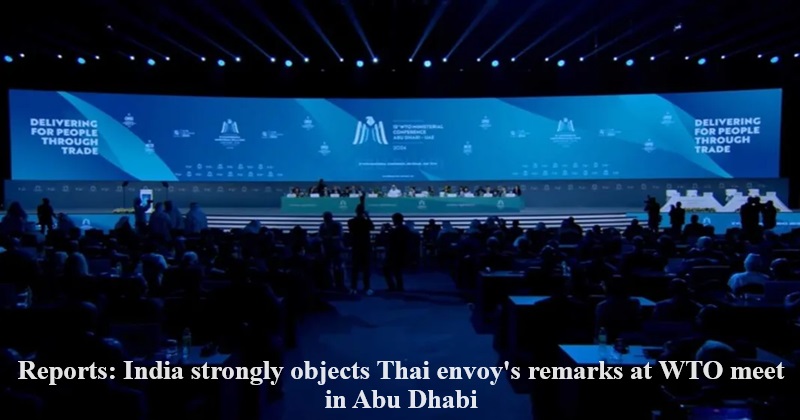
India has adopted a resolute stance against the statements attributed to Thailand’s Ambassador Pimchanok Vonkorpon Pitfield during her address to the World Trade Organization (WTO) in Abu Dhabi. Allegedly, these remarks took aim at India’s public stockholding initiative, a pivotal element of its agricultural strategy designed to bolster farmers by ensuring stable prices for crucial crops and upholding food security for its populace.
Significantly, this initiative has been a focal point of deliberation and negotiation within the World Trade Organization (WTO), owing to apprehensions regarding its potential ramifications on global trade dynamics. According to reports from undisclosed sources, Pitfield’s comments were deemed ‘offensive’ and criticized India’s rice procurement scheme. Pitfield laid blame on the program, asserting that the nation is exporting 40 percent of the rice it procures for its Public Distribution Systems (PDS) to bolster its export market. This remark incited tensions, prompting India to voice a vigorous protest, leading to the replacement of the Thai Ambassador.
“India has expressed strong displeasure over the comments made by the Thai Ambassador. Consequently, she has been replaced,” media outlets reported, citing an anonymous source. The reports further suggested that the Ambassador’s remarks were perceived as disparaging towards India’s public stockholding program, which prompted the swift diplomatic action.
The altercation underscores the sensitivity surrounding agricultural policies and trade dynamics within international forums such as the WTO. India’s assertive response reflects its commitment to safeguarding its agricultural interests and defending its policy initiatives against perceived external criticism. Moreover, the incident highlights the intricate interplay between national agricultural strategies, global trade regulations, and diplomatic relations among member states of international organizations like the WTO.

Post Your Comments